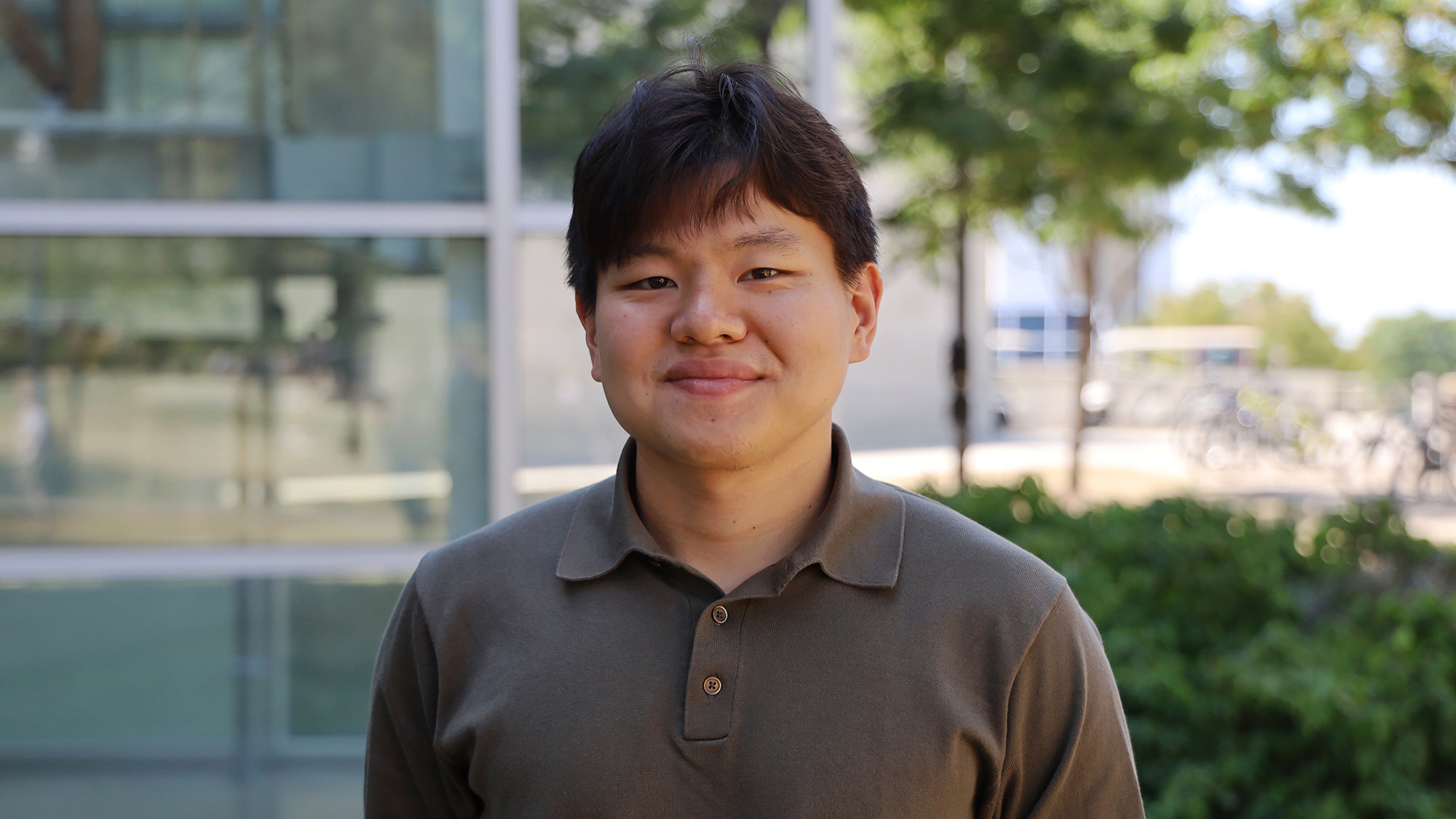Public Health Buckeyes: Minseung Kim
PhD student explores relationship between microbes, the environment, human health
By Amelia Stroud

After discovering the unseen diversity of microorganisms in a handful of soil, Minseung Kim, a PhD student in environmental health sciences, became fascinated by how these tiny organisms shape ecosystems and influence human health. Now, his research focuses on modeling environmental microbial communities to better understand their impacts on population health.
Kim shares what drew him to environmental health and how he hopes his work will help communities manage water resources more efficiently.
Question:
What sparked your focus on the intersection of environmental microbial communities and human health?
I enrolled in a microbiology lab course as an undergraduate where I prepared a culture and inoculated it with a small amount of soil — less than a teaspoon. A few days later, I saw countless microorganisms growing on it, showing diverse characteristics such as different colors, shapes and even smells.
I became curious about how microorganisms affect the environment and human health — are they beneficial or harmful? It was incredibly fascinating to me. This experience led me to pursue a career in environmental health, with a particular focus on environmental microbiology.
Question:
What is your favorite part of doing public health research?
My favorite part of doing public health research is modeling. Most of the models I create are used to explain how environmental factors affect microbial communities and, in turn, influence human health. Using these models, I can sometimes discover previously unknown patterns or make predictions under different scenarios. It is fascinating to expand my thinking and develop theories in a virtual setting.
Question:
What has surprised you most about pursuing a PhD?
Before I started my PhD, I thought a PhD was simply someone who could perform experiments well or solve difficult formulas written on the board. However, most of the training I have received focuses on how to think critically, how to represent ideas clearly, how to prove them and how to communicate them effectively.
The most surprising thing about this training is that it is also helpful in areas unrelated to research. When I need to decide priorities in life, this kind of training helps me organize my thoughts and make decisions based on a clear framework.
Question:
Looking ahead, what kind of impact do you hope your work will have on population health?
Many of my research projects use Geographic Information System to analyze the spatial variation of microbial communities in water bodies. I think this can be helpful for the people who use the water, because if there is a problem, it can provide early warnings. It can also help decision-makers manage water resources more efficiently by supporting better resource allocation.
Question:
What do you wish more people knew about environmental health sciences?
When people hear the term environmental health sciences, they often think only of pollutants or diseases. However, from my experience in research, anything related to the places we live and how they affect our health can fall under environmental health sciences. Among my colleagues, some study food accessibility in neighborhoods, while others analyze satellite images. No matter what academic background you come from, you can contribute to environmental health sciences.
About The Ohio State University College of Public Health
The Ohio State University College of Public Health is a leader in educating students, creating new knowledge through research, and improving the livelihoods and well-being of people in Ohio and beyond. The College's divisions include biostatistics, environmental health sciences, epidemiology, health behavior and health promotion, and health services management and policy. It is ranked 22nd among all colleges and programs of public health in the nation, and first in Ohio, by U.S. News and World Report. Its specialty programs are also considered among the best in the country. The MHA program is ranked 5th and the health policy and management specialty is ranked 21st.